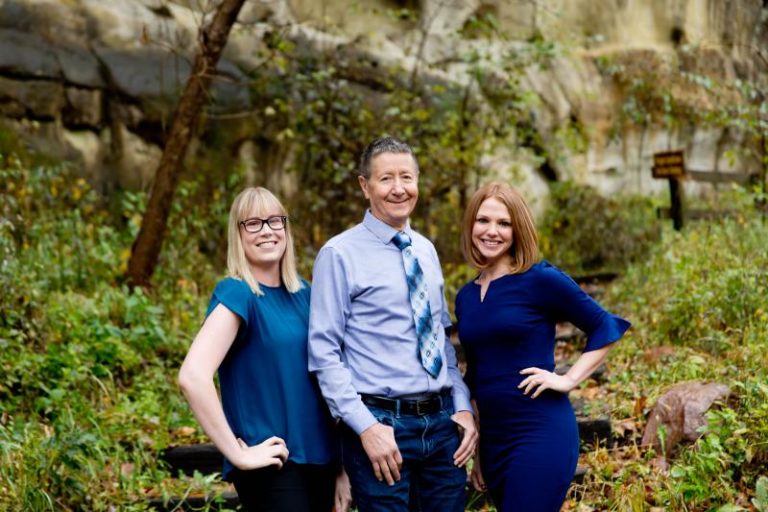Submitted by Emilia Sautter, Ecospirituality Coordinator at Prairiewoods Franciscan Spirituality Center. Post originally appeared in the Prairiewoods’ Newsletter
Caring for Sister Water was one of many creation care efforts that came with the founding of Prairiewoods 20 years ago. These efforts included two infiltration ponds that hold much of the water that runs off our parking lots and roadways, as well as numerous trees and plants with extensive root systems that hold and cleanse water. After the Cedar Rapids floods of 2008, we doubled our efforts to address storm water concerns— we installed permeable pavers, hosted rain barrel classes and identified four storm water culverts that drain on our land. Varying degrees of erosion meant that all four of these culvert areas needed attention.
The first project—the North Culvert—was addressed in the fall of 2013. We built a series of rock check dams to help slow storm water, reducing the erosion that was degrading the area.
The East Culvert, the largest culvert on our property, recently was completed, thanks to generous grants from the Greater Cedar Rapids Community Foundation and Rockwell Collins. This culvert has a drainage area of about 73 acres, meaning that water from more than 70 acres drains onto our land through this storm water culvert. The water then flows into Dry Creek and eventually into the Indian Creek and Cedar River Watersheds. (The Cedar River Watershed includes Hiawatha, Cedar Rapids and a number of other communities. It is what flooded in 2008.) Over the years, rain events and impervious surfaces (such as roads, driveways and turf grass) have forced large amounts of fast moving water through this culvert, degrading the culvert and resulting in severe stream bank erosion.
Why do we care? Erosion means soil loss, soil loss leads to sedimentation in the water, and sedimentation (the number one cause of water pollution in Iowa) leads to reduced water quality (1). Soil is the foundation of our entire food system, and without it we humans could not live. The health of Sister Water is a direct reflection of our own health, as our bodies are about 60% water.
During the East Culvert Project, we reshaped the eroded banks to allow water to spread out. We also re-seeded the banks with vegetation that better holds the soil. We removed some trees to allow more light in to help the vegetation thrive.
One way to help Sister Water is to move away from systems that force water into our waterways, since this leads to flooding and water pollution. Sister Water wants to move more slowly, at her own pace, nourishing flora and fauna as she infiltrates back into Earth. At Prairiewoods, we want to help her as best we can.
Thanks to the Greater Cedar Rapids Community Foundation and Rockwell Collins, we are offering free educational classes as part of our East Culvert Project. Join us for EarthFriendly Lawn Care on Sept. 29 (see p. 9 for details) or for upcoming Rain Barrel Classes (see our website for details). Visit www.IowaStormWater.org to learn what you can do with your own lawn. And if you are a Cedar Rapids resident, visit www.Cedar-Rapids.org to learn how you can get reimbursed for up to 50% of storm water retention projects on your property
(1) Statistic is regarding the source of surface water pollution by volume in Iowa. Source: https://www.polkcountyiowa.gov/conservation/education/nature-in-iowa/water-quality/.
